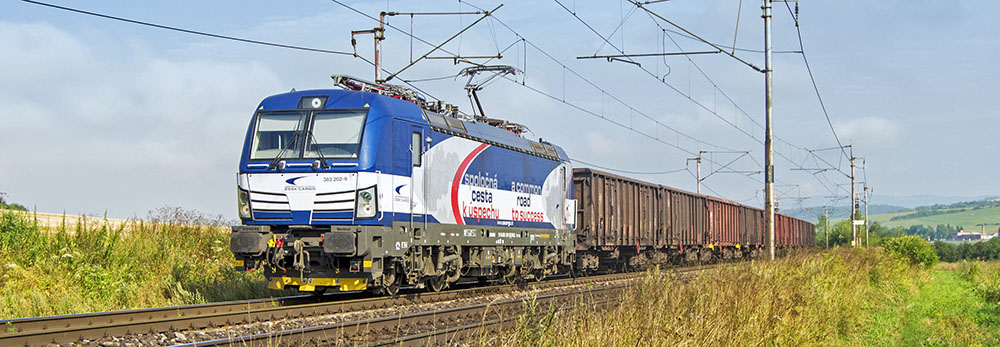Prihláste sa na odber noviniek


High-quality white kaolin mined in Ukraine used to go to customers mainly by sea through Ukrainian ports. Like cereals, starting in 2022, this commodity also had to look for new ways to reach customers. One of the roads, all the way to North Africa, goes today through Slovakia.
Ukraine has large mineral wealth and fertile soils that can help the European Union reduce its dependence on imports from other countries. In addition to new transport and transshipment options for exporting Ukrainian grain, transshipment points in eastern Slovakia came to life this year with other commodities. Land terminals, where the track gauge is changing, represent great opportunities for movements by rail. And even in commodities that are less known. Among them is, for example, kaolin.
When Ports Get a Red Light, Rail Is the Answer
Kaolin is a mineral raw material used, for example, by cement factories in the Záhorie region for the production of white cement. But kaolin supplied from Ukraine is appreciated for its whiteness and quality by the world's best manufacturers of tiles and sanitary ware – such as the ones from Italy and Spain. In 2021, over 1.6 million tons of kaolin were mined in Ukraine, of which more than 64% were destined for export. Similar to grain, they used to direct the flow of goods to Ukrainian ports, from where the kaolin was loaded onto ships and headed to customers. Military aggression on Ukrainian territory gave this flow a red light, so ceramic manufacturers sought new ways to get their highly valued kaolin to the production lines. Railway was the answer.
The Journey of Kaolin from the Processor to the Slovak Border
Not only European companies are buying kaolin from Ukraine, but also, for example, a ceramic manufacturer from the city of Alexandria, located on the northern coast of Egypt. It has ordered kaolin from a supplier near the city of Kozyatyn, which is located about 200 kilometres southwest of Kyiv. “The kaolin processing plant near this town produces approximately 140,000 tons of kaolin per annum. Fifteen broad-gauge wagons departed on their 13-day journey to the transshipment yard in Čierna nad Tisou. There, employees of the transshipment yard moved the load into European-gauge wagons," explains Jozef Cenký, head of the timber and building materials commodity group at ZSSK CARGO. Kaolin was placed in big bags, and the sheets protected them against bad weather in the open wagons of Ukrzaliznytsia. In Slovakia, however, covered wagons were already used for transportation.
A Unit Train of Covered Wagons
The employees of the BTS terminal took care of high-quality transshipment. Thanks to the fully retractable sides of the standard-gauge wagons, including the roof part, it was possible to transfer the big bags by crane directly from the wide gauge wagons on one track to the standard-gauge covered wagons on the other track. Since the capacity of Ukrainian wagons is significantly larger, up to 19 wagons were needed on the Slovak side to transfer the entire load. After shunting, a complete train was created, which was pulled by a Vectron locomotive with the power of eight and a half thousand horses.
Through the East Slovak Transhipment Yards to Alexandria
The train set out on the 550-kilometre journey across Slovakia on the morning of 21 December 2022. After the stop in Spišská Nová Ves, a "twin" locomotive (Class 131) was added as a pusher. It helped to push the train all the way to the summit station in Štrba, from where the Vectron alone managed to descend from the Štrbská ramp and on the next trip along the Váh river. The destination station was a Hungarian border station near Bratislava, Rusovce. From there, the wagons travelled almost another 600 kilometres until they reached the Sežana station in Slovenia, located on the border with Italy, near the port city of Trieste. At the nearest port, the big bags headed for a sea ship, in which they crossed the Mediterranean Sea until the delicate goods reached the destination port of Alexandria, Egypt. Why delicate? "Kaolin must not get dirty or absorb moisture so that it does not deteriorate. In this transport, our company once again proved to be a reliable partner that can ensure high-quality transshipment and transportation of goods," explains Jozef Cenký.
Do you also need to transport the wood or building materials? Do not hesitate to contact the sales manager and head of this commodity group at ZSSK CARGO, Jozef Cenký, at cenky.jozef@zscargo.sk or +421 903 550 737.